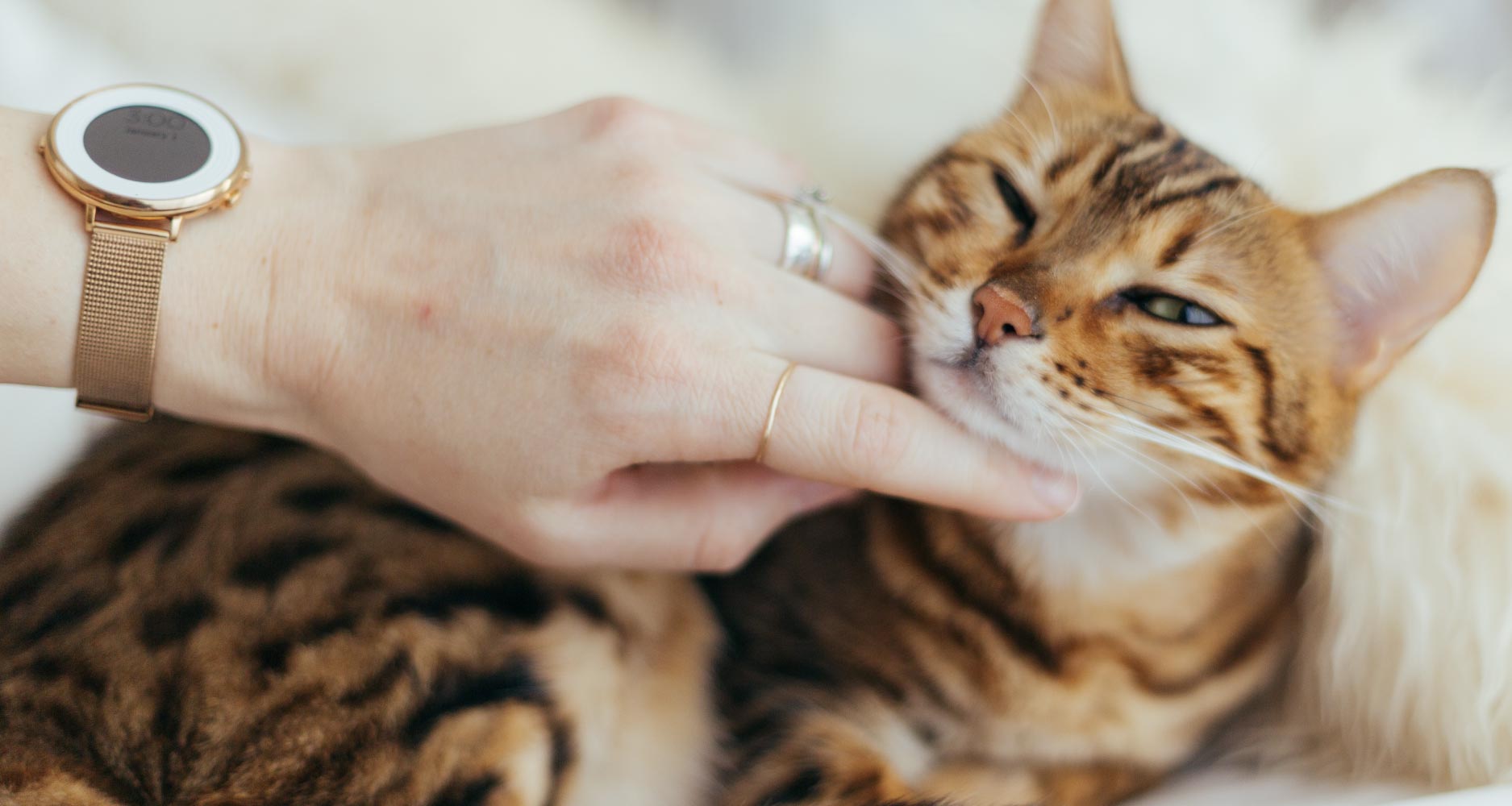HEALTH & WELLNESS

TRENDING

SIGN UP and Start Receiving
Our Monthly Newsletter,
The Chronicles
TAKING CARE OF YOUR CAT’S HEALTH

Some cat owners might wonder when their pets need a visit to the veterinary. After all, many of them only go when it’s an emergency – but that’s not enough.
In fact, once a year, every year, your cat(s) should see a veterinarian for a full checkup and all the necessary shots and vaccinations for his or her age and your geographical environment.
If your cat is sick, injured or behaving strangely (uncharacteristically lethargic, struggling to breathe, not eating or drinking water, etc.) then make an appointment with your veterinarian immediately.
Top Routine Healthcare Checks / Safety Measure:
- Reduce stress (limit noise and harassment by other cats/animals; offer retreats)
- Check your cat for any ear discharge
- Attend to your cat’s dental care
- Feel for external lumps on your cat
- Keep your cat trim and in shape
- Groom long-haired cats
- Neuter/spay your cat
- Treat your cat for fleas
- Vaccinate your cat
FLEAS & TICKS
It is important to frequently inspect your cat for ticks and fleas, especially from early spring.
If you notice a problem, there are various tick and flea control products available. Opinions on which ones to use vary according to beliefs, needs and affordability.
One of the very effective, yet costly, options is topical solution that keeps cats tick- and flea-free for up to three months. For maximum efficiency, it’s important that the cat receives the right dose, based on his or her weight. Catteries often require cats to be on a specific tick and flea control product before entry is allowed.
VACCINATIONS
At first, kittens get natural immunity benefits from their mother’s milk, but vaccinations will need to be given for when this wears off.
Taking care of your kitten’s health is very important, especially in the early days (typically 8 – 9 and 11 – 12 weeks of age) when life-threatening diseases are lurking.
A combined vaccine, administered twice, is generally recommended for protection against the following diseases:
- Cat ‘Flu’
- Feline Leukaemia Virus
- Feline Infectious Enteritis (AKA Panleukopenia or Feline Parvovirus)
Once your kitten’s had his or her second injection, it’s time to stay indoors (and away from other cats) for a while.
You can also consider vaccinations to protect against rabies, chlamydia and bordetella. Ask your veterinarian which vaccinations, shots and treatments are recommended for your cat’s breed, lifestyle and geographical environment.
REMEMBER: Take your cat for regular booster shots throughout their lifetime. If you don’t get reminders from your veterinarian, note the dates in your regular or digital diary/calendar. Also keep your cat’s vaccination certificate(s) handy, but safe, and up to date. A cattery will require this document, should you need their services.
MEDICINES & POISONS
Cats should not eat or have access to any of the following:
Xylitol | Alcohol | Onions & Garlic | Coffee, Tea & Other Caffeine | Grapes & Raisins | Milk & Other Dairy Products | Chocolate | Fat Trimmings & Bones (Raw or Cooked) | Raw Meat & Fish | Too Many Cat Snacks | Sugary Foods & Drinks | Yeast Dough | Human Medicine | Baking Ingredients & Spices | Candy & Gum | Dog Food | Liver | Tuna Only or in Excess
Only give your cat medicine that has been prescribed by a qualified, certified veterinarian and keep rodent, insect and other poisons in a safe place, always out of reach. If, for any reason, you think your cat might have ingested any poisonous substance, call your veterinarian immediately.
WORMS
Many humans, whether pet owners or not, even make use of deworming medication as a precaution. Be sure to deworm kittens as often as necessary (usually against roundworm every two weeks from 6 – 16 weeks old).
The age and weight of the kitten will determine which product you should use. Deworm adult cats regularly, even when they are feeding kittens. Most cats should be treated about four times each year, but check with your veterinarian to confirm (your cat’s behaviour, e.g. whether it hunts, plays a role).
Tapeworms, caught from fleas, look like grains of rice and can be seen in excrement. Another reason why buying a quality flea and tick control product is so important.
SPAYING & NEUTERING
Besides the fact that there are already so many unwanted kittens, and eventually unwanted cats, there are certain health and lifestyle reasons why spaying and neutering cats are often the best decision.
Recovery is almost always rapid.
- Every three weeks females come “on heat”
- Females “on heat” are restless, often miaow loudly and appear to be in pain
- Recurrent heats can cause distress, while drugs to suppress it can have side effects
- Spaying prevents womb infections later in life and reduces the risk of breast cancer
- The procedure can be safely performed around 5 – 6 months of age (or earlier/later)
- There’s no need or benefit for a cat to have a litter before being spayed
- Unneutered male cats are more likely to spray in the house and display aggressive behaviour
- Male cats should be neutered at 5 – 6 months to reduce the risk of contracting a cat version of incurable AIDS (contracted during fights)
Related Articles








